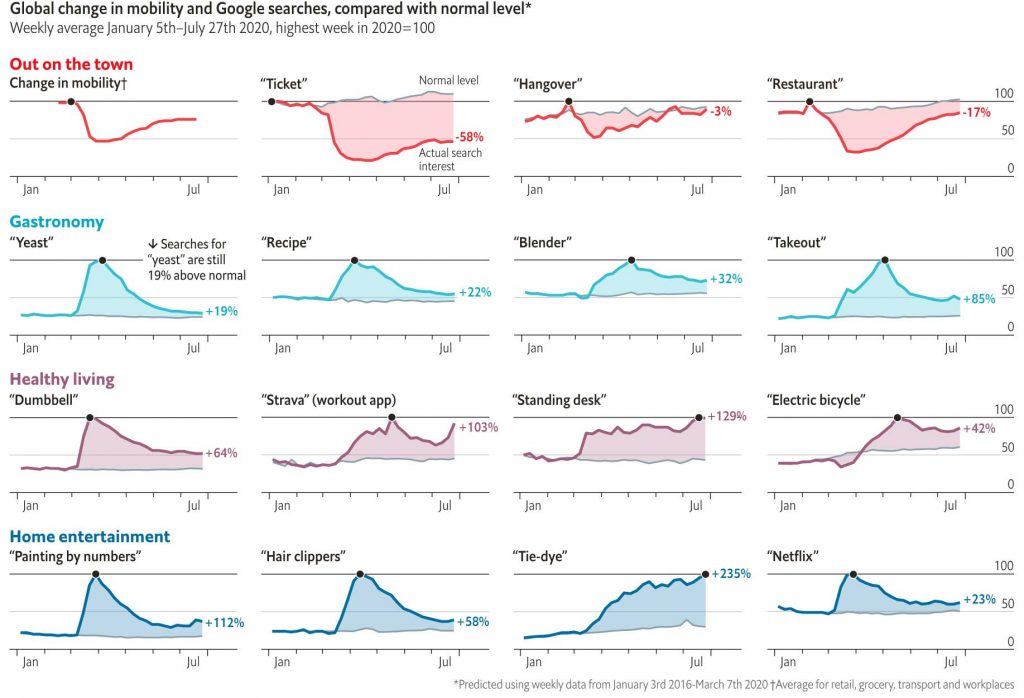Changes in lifestyles are always consequences of changing life circumstances. On an individual level, this includes education, income, or age; On a macro level, this includes, among other factors, political change, governance, and technical progress.
Lifestyle changes on an individual level are simple to understand: For instance, an increased or decreased income instantly affects individual purchasing behaviour. Macro level changes, on the other hand, often have multiple causes which create cause and effect chains. For instance, a small change in government policy concerning the taxation of the housing market can lead to large changes in wider market dynamics which in turn affect the wealth and welfare of large swathes of a population.
The current pandemic is an example of a global macro level change, as it endangers the health of populations worldwide. So does fast food, for instance, but a disease such as Covid 19 is faster in its detrimental effects on individual health.
The effect of a virus on individual health becomes quickly obvious, while the effects of government response to a virus takes more time to be noticeable. A country can successfully keep infections down through measures such as social distancing and isolation, but these measures can at the same time hold back vital economic interactions. The same measures which might avert a public health threat can cause an economic decline.
These chains of causes and effects affect changes in consumer needs and demands. A recent analysis of internet search words by The Economist reveals a few short-time indicators for lifestyle changes during the pandemic. As many had been confined to their homes, personal at-home activities such as working out at home (searches for dumbbells or Strava) or homemade arts and crafts (searches for tie-die or painting by numbers) surged.

Long-term changes are more important, however, as they result in fundamental changes in spending. Here are some of the long-term changes we predict:
High end traveling
In tourism, high-end businesses catering to high income consumers will have an easier time to regain market share. However, mass tourism on the level before Covid 19 will take a long time to recover.
More affordable basic services
The already existing trend towards informal and basic services (delivery services, personal transport) will increase as more nonessential jobs are lost as a consequence of isolation measures. The increased competition will also cause a downward price pressure on basic services without differentiator.
Decentralization of institutions
Institutions and infrastructure which until now was based on on centralized real estate will eventually have to be decentralized: Homes for the elderly, dormitories for migrant workers, or prisons are all based on cramming large numbers of vulnerable people together and hence became major infection hotspots.
Working from home
Also offices cram large numbers of people together. Working from home will therefore, at least for a segment of the population, become an integrated part of their lifestyle (see also Home, sweet home). Consequently, also businesses and services connected to offices – the office real estate market, inner city restaurants catering to office workers, or public transport systems – will be affected.